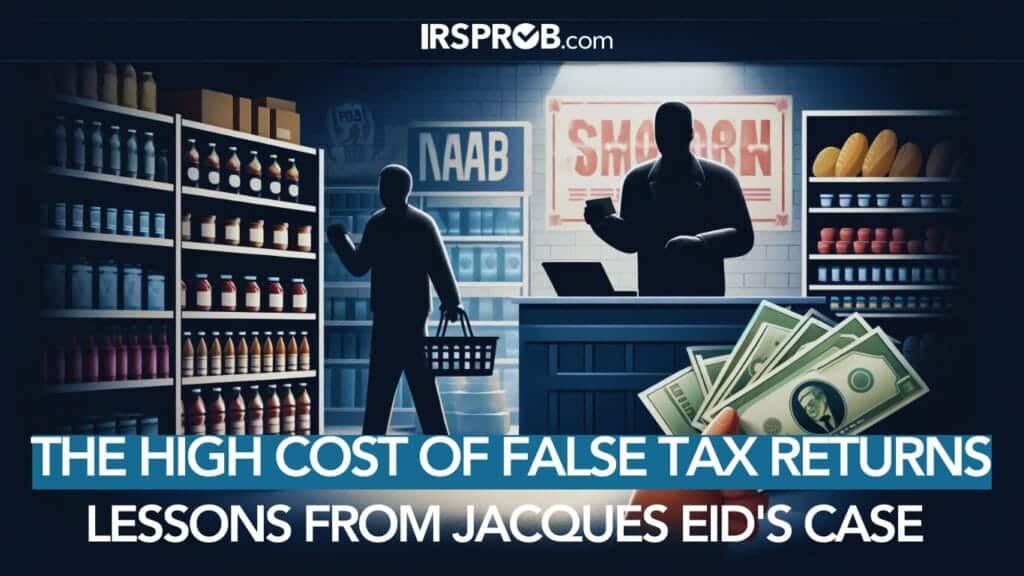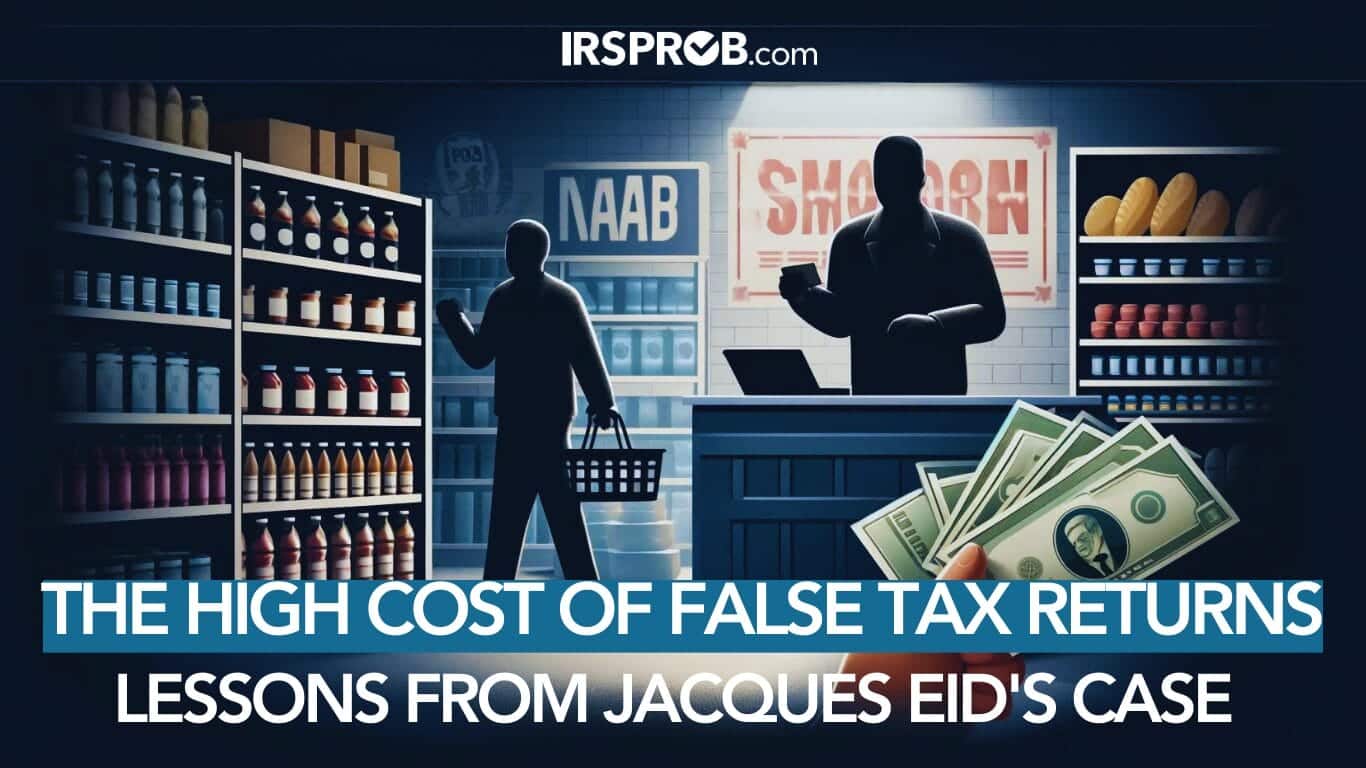
In a notable case of tax fraud, Jacques Eid, an owner of both a convenience store and a restaurant, was recently sentenced to two-and-a-half years in prison for filing false tax returns and committing wire fraud against educational and government entities. This case sheds light on the severe consequences of misreporting income and fraudulently manipulating financial systems.
Underreporting Income
Eid underreported his income by more than $800,000. This significant underestimation of taxable income not only deprived the government of necessary tax revenues but also underscored the importance of accurate income reporting for business owners. According to IRS tax code, underreporting income can lead to severe penalties including fines and imprisonment. The IRS encourages voluntary compliance, and business owners must ensure their earnings are fully and accurately reported.
Misuse of Federal Aid
Using the falsified tax information, Eid applied for federal student aid for his children. He obtained over $50,000 in aid to which he was not entitled. This misuse of federal resources highlights a critical misuse of programs intended to assist families genuinely in need of financial support for education.
Illegal Gains Through Food Stamp Fraud
Adding to his fraudulent activities, Eid exploited the food stamp program. Having previously been convicted for illegal use of food stamps, he deceitfully registered his store under his wife’s name to become an authorized retailer. The store then garnered over one million dollars in food stamp benefits, illegally profiting by at least $220,000. This kind of fraud undermines the integrity of government assistance programs designed to help those in real need.
Financial Penalties
As a result of his actions, Eid was fined $797,151.38 and further ordered to reimburse various educational institutions and the Department of Agriculture, totaling nearly $281,785.69. These fines and restitution payments serve as a reminder of the financial repercussions that can accompany tax fraud and other fraudulent activities.
The Broader Impact
Business owners must understand that the consequences of tax fraud extend beyond immediate financial penalties and possible imprisonment. Such actions can severely damage an individual’s reputation, future business prospects, and professional relationships. They also have a broader impact on the community, affecting trust in both government and local businesses.
Conclusion
Jacques Eid’s case is a powerful reminder of the importance of compliance with tax laws and ethical business practices. Business owners are advised to maintain transparent and accurate financial records and to seek professional advice if unsure about tax matters. Adhering to the law not only avoids legal repercussions but also builds trust and stability in the business community.
As business owners, it is essential to regularly review your financial activities and ensure compliance with all relevant IRS regulations and guidelines, maintaining the integrity of both your business and the financial systems at large.









